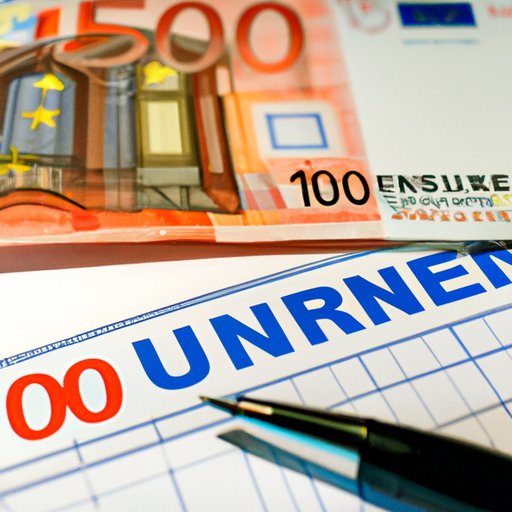
Introduction
Money orders are a useful alternative to checks and cash when it comes to making payments. They are widely accepted as a secure and convenient way to send payment anywhere in the world. However, like any other payment method, they come with some level of risk, particularly if you do not understand who the purchaser on a money order is and what their role in the transaction is. In this article, we will explore who the purchaser on a money order is, their role, and the importance of understanding their significance in the transaction.
A Guide to Understanding the Role of the Purchaser on a Money Order
The purchaser on a money order refers to the person or entity who buys and issues the money order. They are responsible for providing valid information about themselves and the recipient, as well as the money being sent. Understanding the role of the purchaser is vital as it can help in avoiding scams and ensuring that the transaction is successful.
Introduction to the Purchaser
The purchaser can be an individual or an entity, such as a business or organization. In most cases, the purchaser buys the money order from a bank or other financial institution. The purchaser is primarily responsible for filling out the necessary information on the money order and signing it to authorize it.
Role of the Purchaser
The primary role of the purchaser is to ensure that the recipient of the money order receives the payment. The purchaser is responsible for providing accurate and valid information to the recipient, including their name, address, and other relevant details. The purchaser also assumes responsibility for making sure that the payment is delivered to the intended recipient.
Importance of Identifying the Purchaser
Identifying the purchaser is important for various reasons. For one, it helps in verifying the authenticity of the money order. It also helps in detecting any fraudulent activities that may be associated with the transaction. Knowing who the purchaser is and having their contact information can also help in case there are any issues or problems with the transaction or funds.
Limitations of the Purchaser’s Role
While purchasers play a crucial role in money order transactions, their role is limited in certain respects. They cannot, for instance, stop a payment or retrieve the funds they sent unless it has not yet been cashed. They also cannot issue refunds or reverse payments unless it has been authorized by the recipient or the financial institution.

Who Bears Responsibility: The Purchaser of a Money Order
When it comes to money orders, the purchaser is primarily responsible for ensuring that the transaction is legitimate and that the recipient receives payment. They also bear some level of responsibility for any fraudulent activities associated with the transaction.
Responsibility of the Purchaser
The purchaser is responsible for providing accurate and valid information about themselves and the recipient. They must also ensure that the payment is delivered securely to the intended recipient. If there are any issues or problems with the transaction, the purchaser needs to act quickly to resolve the situation.
Liability for Fraudulent Activities
If a money order is used for fraudulent activities, the purchaser bears some level of responsibility, especially if they were involved in the scam. While financial institutions and other entities may be able to help in resolving such issues, purchasers must also take necessary precautions to prevent scams and fraud.
Importance of Choosing a Trustworthy Purchaser
One way to minimize the risk of fraudulent activities is by choosing a trustworthy purchaser. It is essential to work with an established financial institution or reputable entity when buying or issuing a money order. Doing so can help in preventing scams and protecting against fraudulent activities.
Exploring the Legal Significance of the Purchaser on a Money Order
Money order transactions involve legal documentation and procedures that can have significant implications for the purchaser. Understanding the legal significance of the purchaser’s role is crucial for every party involved in a money order transaction.
Purpose and Significance of Money Order Documentation
Money orders come with documentation that serves as evidence of the transaction. This documentation can be used to verify the validity of the transaction, resolve disputes, or prove ownership of the funds. The documentation may also be used as evidence in legal proceedings if necessary.
Importance of the Purchaser’s Information
The purchaser’s information is critical in money order transactions as it establishes the identity of the sender. This information is also used to verify the legitimacy of the transaction and prevent fraudulent activities.
Role of the Purchaser in Legal Disputes
If legal disputes arise in a money order transaction, the purchaser may be required to provide documentation and information about the transaction. They may also be called to testify in court or other legal proceedings. As such, purchasers must ensure that they provide accurate and valid information in money order transactions.
Understanding the Rights and Obligations of Money Order Purchasers
Money order purchasers have specific rights and obligations that they must adhere to when it comes to money order transactions. These rights and obligations are crucial in ensuring that the transaction is successful and legitimate.
Purchaser’s Rights
As a purchaser, you have the right to demand a refund or stop payment on a money order if it has not yet been cashed. You also have the right to dispute any fraudulent activities associated with the transaction. Knowing your rights as a purchaser is essential in protecting yourself in money order transactions.
Purchaser’s Obligations
Purchasers have various obligations when it comes to money order transactions. They must provide accurate and valid information about themselves and the recipient. They must also ensure that the payment is delivered securely to the intended recipient. If there are any issues or problems with the transaction, they must act quickly to resolve the situation.
Importance of Adhering to Obligations
Adhering to your obligations as a money order purchaser is critical in ensuring the success of the transaction. Failing to provide accurate information or disregarding your obligations can lead to problems that may be difficult to resolve.
Who Holds the Power in a Money Order Transaction: A Look at the Purchaser
In money order transactions, the purchaser holds a significant amount of power. Understanding the power dynamics involved in a money order transaction can help in ensuring that the transaction is successful.
Power Dynamics in Money Order Transactions
Money order transactions involve a power dynamic between the purchaser and the recipient. The purchaser holds the power regarding the transaction’s initiation and funding, while the recipient holds the power regarding the payment’s receipt and use. This power dynamic must be balanced to ensure the transaction’s success.
Role of the Purchaser in the Transaction
The purchaser is responsible for initiating and funding the transaction. They must also ensure that the payment is delivered to the intended recipient. As such, they play a crucial role in ensuring the transaction’s success.
Importance of Understanding the Purchaser’s Power
Understanding the purchaser’s power in a money order transaction can help in avoiding scams and ensuring that the transaction is successful. It can also help in identifying any issues or potential problems that may arise during the transaction.
The Importance of Identifying the Purchaser on a Money Order
Identifying the purchaser on a money order is essential in ensuring the transaction’s security and success. This is particularly important in preventing scams and fraudulent activities.
Security Concerns
Money orders are a popular target for scammers and fraudsters. Identifying the purchaser is crucial in verifying the legitimacy of the transaction and preventing scams.
Importance of Verifying the Purchaser’s Identity
Verifying the purchaser’s identity is critical in money order transactions. This can help in preventing identity theft and verifying the sender’s authenticity. Financial institutions and other entities may require identification from purchasers to verify the transaction’s legitimacy.
Role of the Purchaser in Safeguarding Money Orders
The purchaser plays a critical role in safeguarding money orders. They must take necessary precautions to ensure the payment is delivered securely and that no fraudulent activities are associated with the transaction.
A Closer Look at the Purchaser’s Role in Safeguarding the Security of Money Orders
Ensuring the security of money orders requires collaboration between all parties involved in the transaction. The purchaser plays a crucial role in safeguarding the security of money orders.
Overview of Security Concerns
Security concerns in money order transactions include identity theft, scams, and fraudulent activities. These concerns can lead to financial loss and reputational damage for individuals and businesses.
Purchaser’s Role in Securing Money Orders
The purchaser must take necessary precautions to secure money orders. This includes verifying the legitimacy of the transaction, providing accurate information, and ensuring secure delivery to the recipient. They must also monitor the transaction for any signs of fraudulent activities.
Importance of Taking Necessary Precautions
Taking necessary precautions is essential in safeguarding the security of money orders. This includes verifying the legitimacy of the transaction and ensuring secure delivery to the recipient. Failing to take necessary precautions can lead to financial loss and reputational damage.
Conclusion
Money orders continue to be a popular alternative to checks and cash when it comes to making payments. However, understanding the role of the purchaser in these transactions is crucial in ensuring their success and security. In this article, we explored who the purchaser on a money order is, their role, and the legal and security implications of their actions. We hope that the information provided will help you make informed decisions when it comes to money order transactions.
Final Thoughts
Remember that money orders, like any other payment method, come with some level of risk. However, taking necessary precautions and understanding the role of the purchaser can help in mitigating these risks. Always work with reputable financial institutions or entities when buying or issuing money orders, and do not hesitate to ask for help if you have any issues or concerns.
Call to Action for Readers
If you found this article helpful, please share it with your friends and colleagues. You can also leave a comment below if you have any questions, concerns, or feedback.




